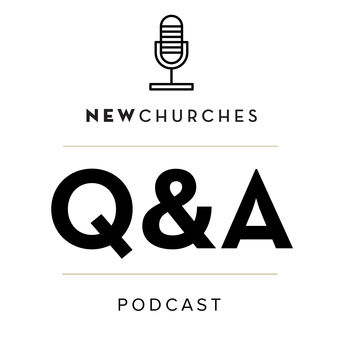
New Churches Q&A Podcast
Daniel Im, Ed Stetzer, and Todd Adkins
The New Churches Q&A Podcast is all about helping you where you’re at in church planting, multisite, church multiplication, and leadership. Every week, Daniel Im, Ed Stetzer, and Todd Adkins will be bringing you practical answers to your real questions. After all, we are pastors and practitioners and have been where you’re at. So through this show, we will help you in your ministry context. We aren’t going to provide lofty pie-in-the-sky theories. Instead, we are going to help you in your real ministry context, with your real thoughts, questions, and issues. Every show, we'll play a voicemail of one of your questions, and then strive to help you as best as we can, by answering your question on this show. On the right hand side of NewChurches.com, you’ll see a bar that says, “Send Voicemail.” If you're on your computer, click that button and begin recording your question right away. If you're on a phone or a tablet, then go to www.speakpipe.com/NewChurches to download the app and record
- More Episodes? Get the App
Your feedback is valuable to us. Should you encounter any bugs, glitches, lack of functionality or other problems, please email us on [email protected] or join Moon.FM Telegram Group where you can talk directly to the dev team who are happy to answer any queries.